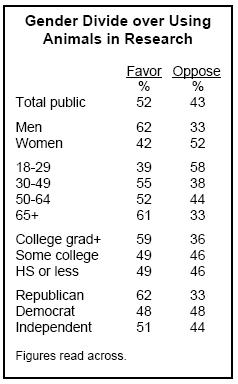On July 9th, the Pew Research Center for People & the Press, in collaboration with the Americans Association for the Advancement of Science (AAAS) released its findings (full report) regarding the public perception of science. In this post I will reflect on some of the interesting aspects of the report. To give some context, the report interviewed over 2,500 scientists, and over 3,000 members of the public.
To kick off, the report showed that 84% of the public felt that “science’s effect on society” has been mostly positive, with only 6% considering it mostly negative. Furthermore 70% of the general public considered that that scientists contributed a lot to society’s well being (interestingly medical doctors fared slightly worse on 69%).
Moving over to the views of scientists, the report found that 85% of scientists consider the public’s lack of knowledge about scence to be a major problem. This is likely to link to the 76% of scientists who think that the news does not distinguish scientific foundings which are well-founded and findings which are not – good examples could include various media sources jumping on the (poorly thought out) anti-vaccination bandwagon. The result is that 83% of scientists consider TV coverage of science to be either of poor or fair quality.
59% of scientists did not consider the regulation on animal research to be a major barrier to high quality science (only 6% considered it “very serious”) which sugests that researchers believe we have found a good balance between animal welfare and the needs of biomedical research. On the other hand 87% considered the lack of funding to be a very serious or serious concern to the future of quality research. In these times of economic thrift it is easy to overlook science funding as being crucial to our well being, but around 2/3rds of those interviewed considered basic research to pay off in the long run – he public must realise that pumping money into, say, cancer research is unlikely to bear fruit for many years, but that money is still crucial if we are to find a cure down the line.
Now for the most relevant information!!
93% of scientists support the use of animals in scientific research (which is to be expected given their higher understanding on WHY we use animals in research). However more concerning is the relatively low (52%) support for animal research by the general public. It is worth remembering that the question asks about views on “animals in scientific research” and not “animals in medical research”, which may have improved the numbers somewhat. It is also worth pointing out that the more education someone has, the more likely they will support animal research – as does age. I would assume that as one gets older they start to see the benefits of research in medicine for themselves, and also see the areas (such as Parkinson’s) which are great need of further research.
Overall we have a mixed bag – the US public has reservations about science, but are generally positive. The stats on animal research shows that groups like Speaking of Research still have a long way to go in educating the public about the role that animals play in the development of medical treatments.
Cheers
Tom Holder

